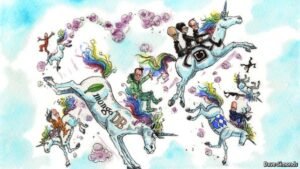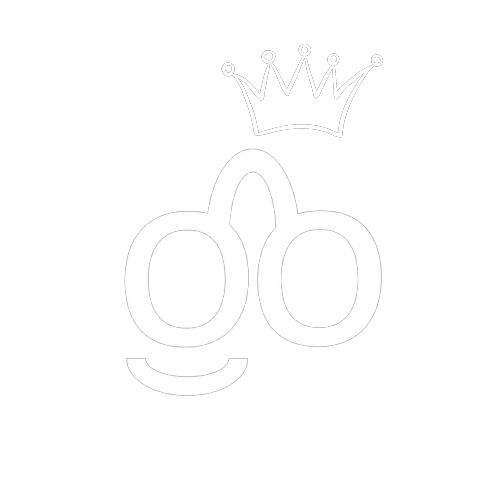Are the days of WhatsApp's domination over?
WhatsApp is the favourite baby boy of social media. The dude around every corner. The most popular guy on the block. And for good reason - the ease and success with-which it's permeated our lives and seeped into our beings is being studied in schools.
Across several industries, we have felt the impact. Tech and engineering, science and research, business and investment, startup and entrepreneurship, leadership and mentorship, legal and data-mining.
Moving stealthily at first, then aggressively, it toppled the world's former favourite platform - BBM.
Regardless, on January 4, 2021, WhatsApp shipped out an update, consequently reviewing its Privacy Policy - an action that cascaded into a worldwide #BoycottWhatsApp Campaign. Within days, WhatsApp's rivals celebrated record-breaking new entrants. Signal: 40 million, Telegram: 25 million.
How it started vs how it's going ???? pic.twitter.com/ERiFpZUz6c
— Signal (@signalapp) January 14, 2021
From the corner of my eye, I watched as people erected social media, virtual placards and clamoured for us all to jump ship. Elon Musk simply tweeted "Use Signal" and thousands followed suit - rapping relentlessly about the need for us all to leave now. Uhm…not quite. I mean, I considered it. Even researched what features Signal really has. I did a random survey on my contact list and found out that a few people actually did download the app. I do have the Telegram App and have had it for almost 2 years. I love it and stand in awe of its outstanding features. Head to head, it has so much more features than WhatsApp.
But these competitors notwithstanding, is it time for WhatsApp to be toppled yet? Nah, I don't think so.
You see, as yet, the userbase is too strong. And there is the undeniable counter-attack and defence posture that Facebook and Instagram provide. These platforms are firm backbones that you simply cannot ignore. I can almost hear you thinking - 'but BBM used to be the rave of the moment, and look what happened to it.' It's really not quite the same. The decline and eventual death of BBM cannot entirely be traced to WhatsApp. In fact, it was self-inflicted.
Terrible internal policies, bad employee management, a needless redirection, loss of passion and vagrant neglect of good advice. The Research in Motion Management (owners of BBM) decided to focus on building Enterprise Applications, security software, at the expense of the one thing that put them past the mobile giants of the day. To reflect, BBM was so successful that despite being just an app, it pushed BlackBerry ahead of Nokia, Samsung and the giants of that day.
When Barack Obama became president, it is reputed that he refused to give his Blackberry up, instead saying that the officials who wanted him to stop using it would have to "pry it out of [his] hands".
Still, look how bad decisions killed its vibe.
I do not see WhatsApp making the same mistake. I have seen the company respond in real-time to competition, copy amazing features of its competition (though most times it's slower than we'd have appreciated). It is quick and responsive in terms of its policies, and has even responded quickly to the current concern by releasing a response to what it calls a misconception, extended the date by-which users need to accept the terms, and silently rolled out new features. Annnnd, there's Mark. Talking about entrepreneurs, Mark Zuckerberg is as dogged and rugged as they come. Look how much userbase he musters. At its height, BBM had less than 200 million users. In comparison, WhatsApp has more than 2 billion. Facebook, almost 3 billion. IG, over 1 billion. In an earlier post, I commented about how Mark controls a combined virtual, digital country of almost 5 billion people.
And left alone, undeterred by regulators or antitrust, anti-competition suits, Facebook is capable of buying both Telegram and Signal in seconds, without breaking a sweat. Don't put it past them.
So, to address the elephant in the room, what's all the fuss really about? And how much data does WhatsApp really hold on you?
I'll address this in another post.
But here's a pro tip: the time hasn't come for WhatsApp to be toppled. In fact, it's about to get bigger and better. Lots of exciting, amazing features are coming and I personally cannot wait. Yes, ADs are coming, and I'm sure you could have predicted that. But more - chat edits are coming for sent (delivered and already read messages), greater admin powers will arrive, disappearing messages have arrived, mini-websites within WhatsApp Business are coming.
This is the most exciting for me:
Multi-device support! In short, you will finally be able to sign in on many devices at once.
If the time ever comes to move and/or ditch WhatsApp, I'll let you know it.
So stay tuned ????
Read some more of my writing here.
That time when Social Media died - for hours.

Social media died - for hours.
Talk about 'understanding the times.' Many picked the wrong time to set sail with their goods on Thursday, March 14 2019. Sh** hit the fan. All hell broke loose. Pandemonium ensued. The three largest Social Media platforms - Facebook, WhatsApp and Instagram [MarkVille] - went down for at least 8 hours. While users wondered what sort of iceberg hit their beloved vessels, many jumped ship and took to Twitter. Twitter, home of banter, the world's headquarters for the hottest gist and gossip welcomed them with open arms. FacebookDown and InstagramDown chants filled the air in the way of hashtags, and Twitter influencers had a filled day.
Home to a combined 4.8 billion users, there's no larger country anywhere in the world. Put simply, if Mark was a President and the subscribers to his SM products were citizens, he would lead a land bigger than China and India.
What was lost?
Millions of companies advertise on MarkVille. In fact, many live there predominantly. They advertise, take orders, ship, restock, run promotions entirely there. When the outage occurred, most running ads simply disappeared - or well, took on Ghost mode. They were running but weren't leaving footprints. You couldn't see them. Imagine all billboards and posters taken down all over cities, and all shops shut down. Businesses couldn't showcase their wares properly, and buyers couldn't see.
On WhatsApp, it wasn't as drastic. While you could still continue chatting with the love of your life, it was your voice notes and lovely videos that suffered. You'd have had better luck getting a stubborn cow on a boat.
What caused it?
A glitch. A server outage that's bound to happen if you run an economy so dynamic, so diverse. Amid the scramble to restore order back to their systems, MarkVille had to resort to its rival, Twitter, to explain that this was being worked on and the nightmare would soon pass.
What if it happens again - this time on a grander scale? What if not just a part, but all of social media dies for more than hours, but days, ever?
It's not a first. Not a second. And it is bound to happen again. Twitter itself is experimenting with a side product called Twttr in a bid to redesign, overhaul its product.
While liability falls like a lot all around laps for these technological glitches, how is your business preparing to meet uncertainty squarely in the field of future uncertainty?
It may seem highly unlikely - especially as the Worldwide Web hit 30 on 12 March 2019. Somehow, the internet has survived.
But what if some internet-esque electromagnetic pulse hit, and everything was shut down? Or an alien civilization struck and took out Earth's technology first?
Doomsday scenarios beg for emergency procedures.
What nasty and brutish times await?
Read some more of my writing here.






